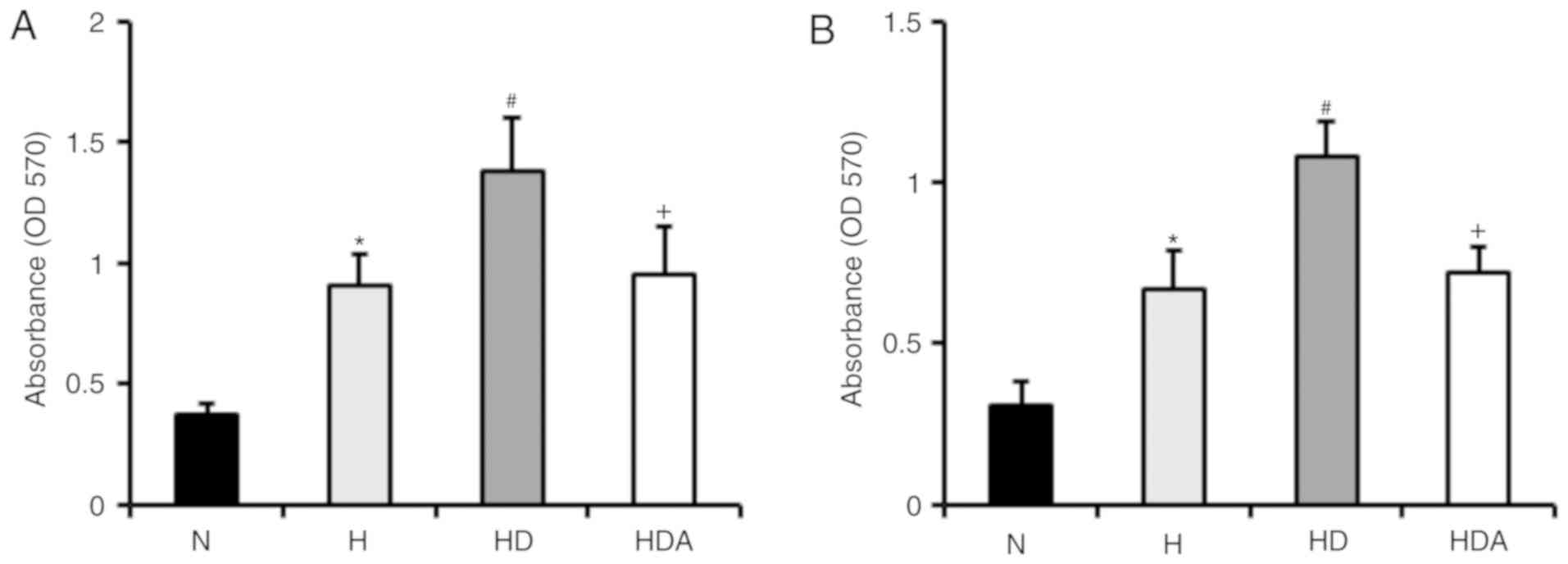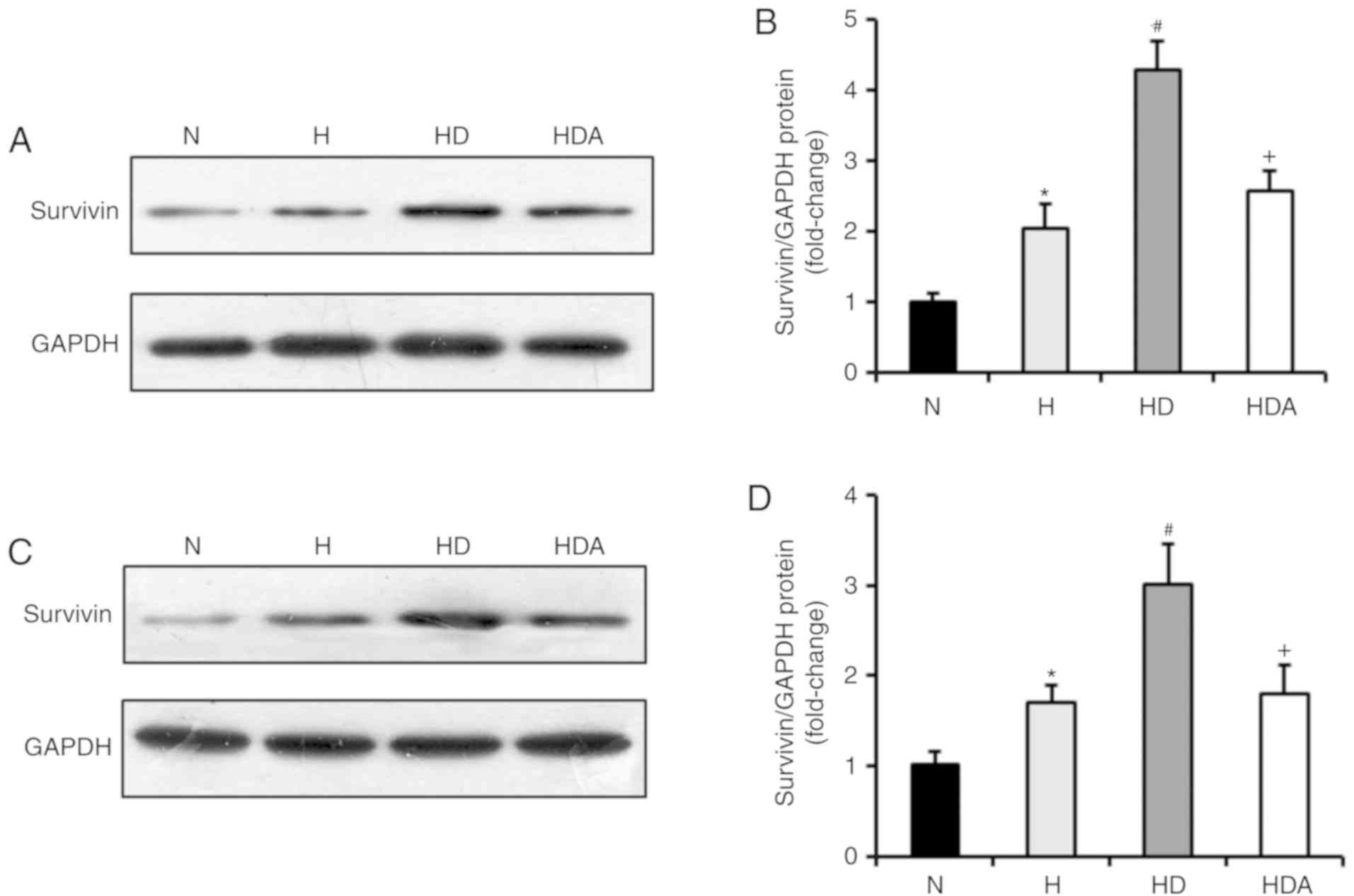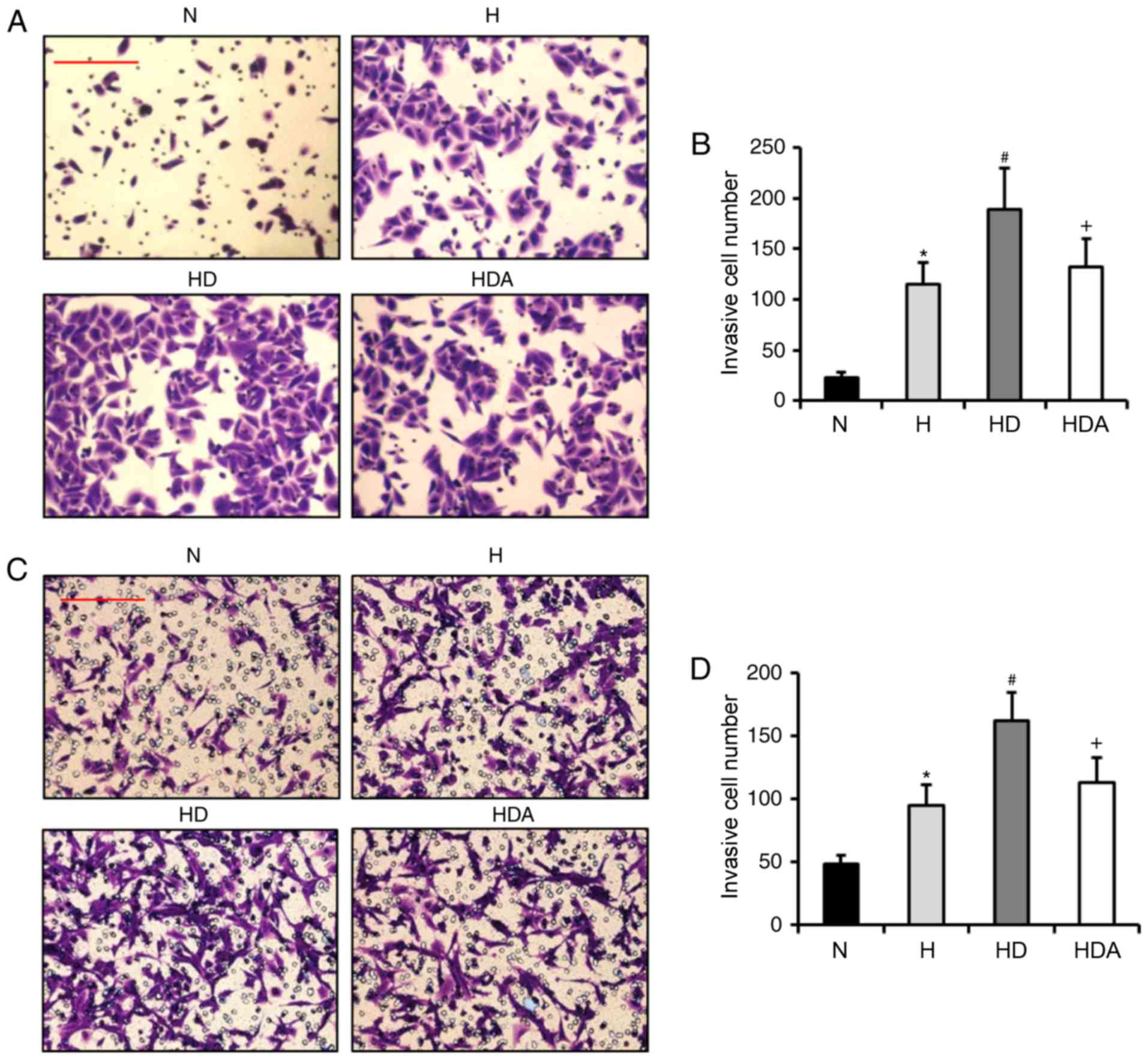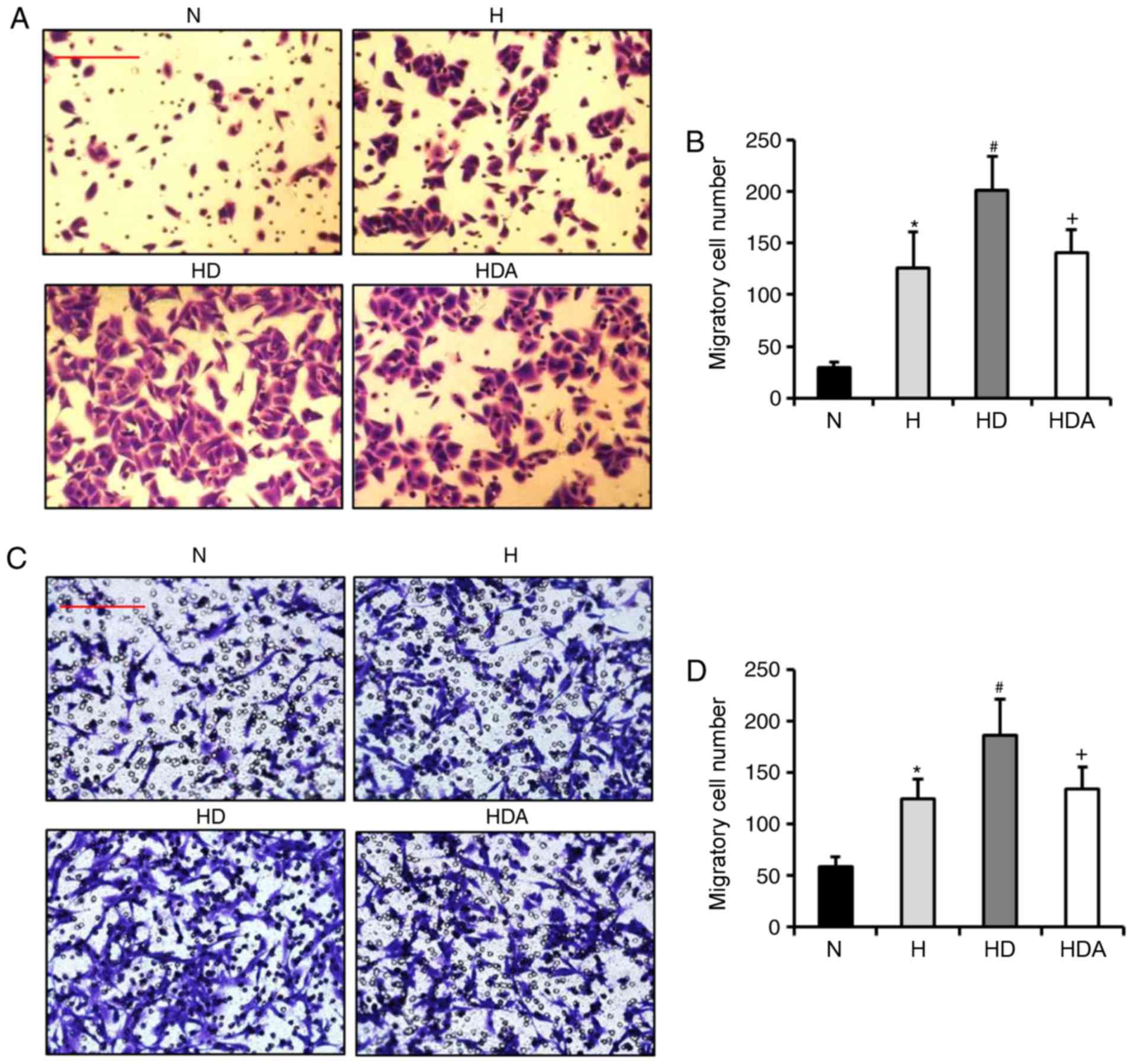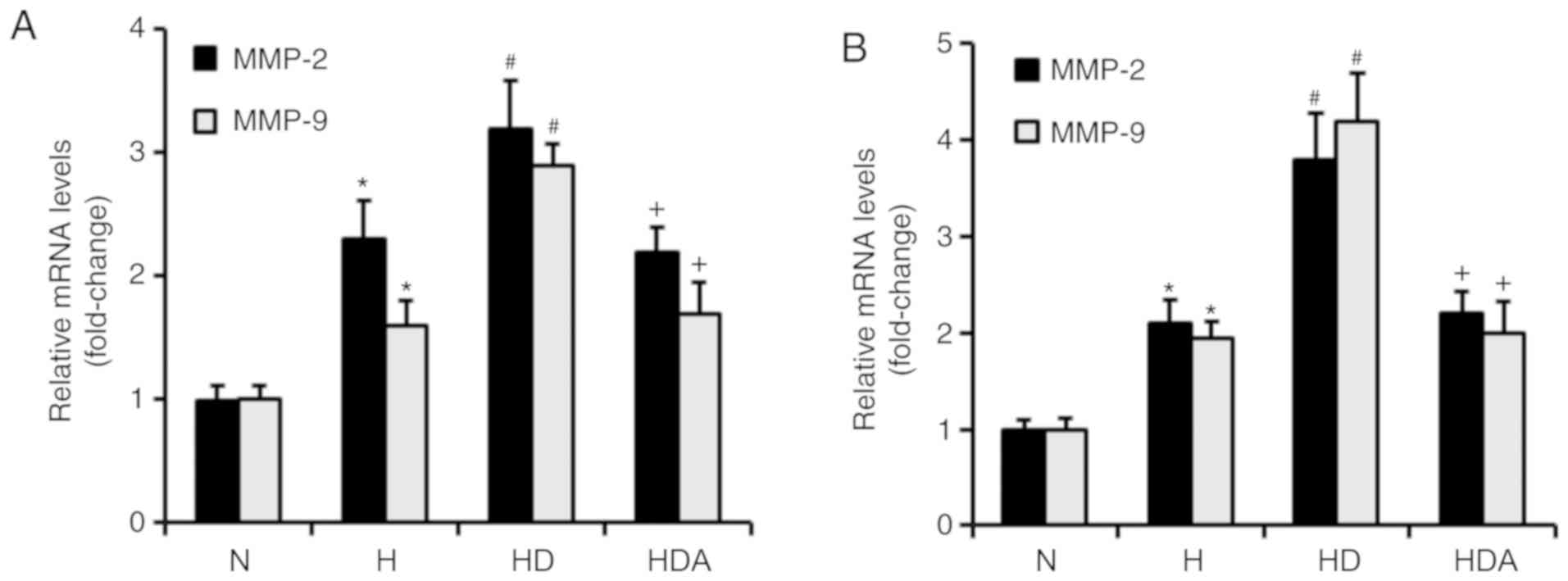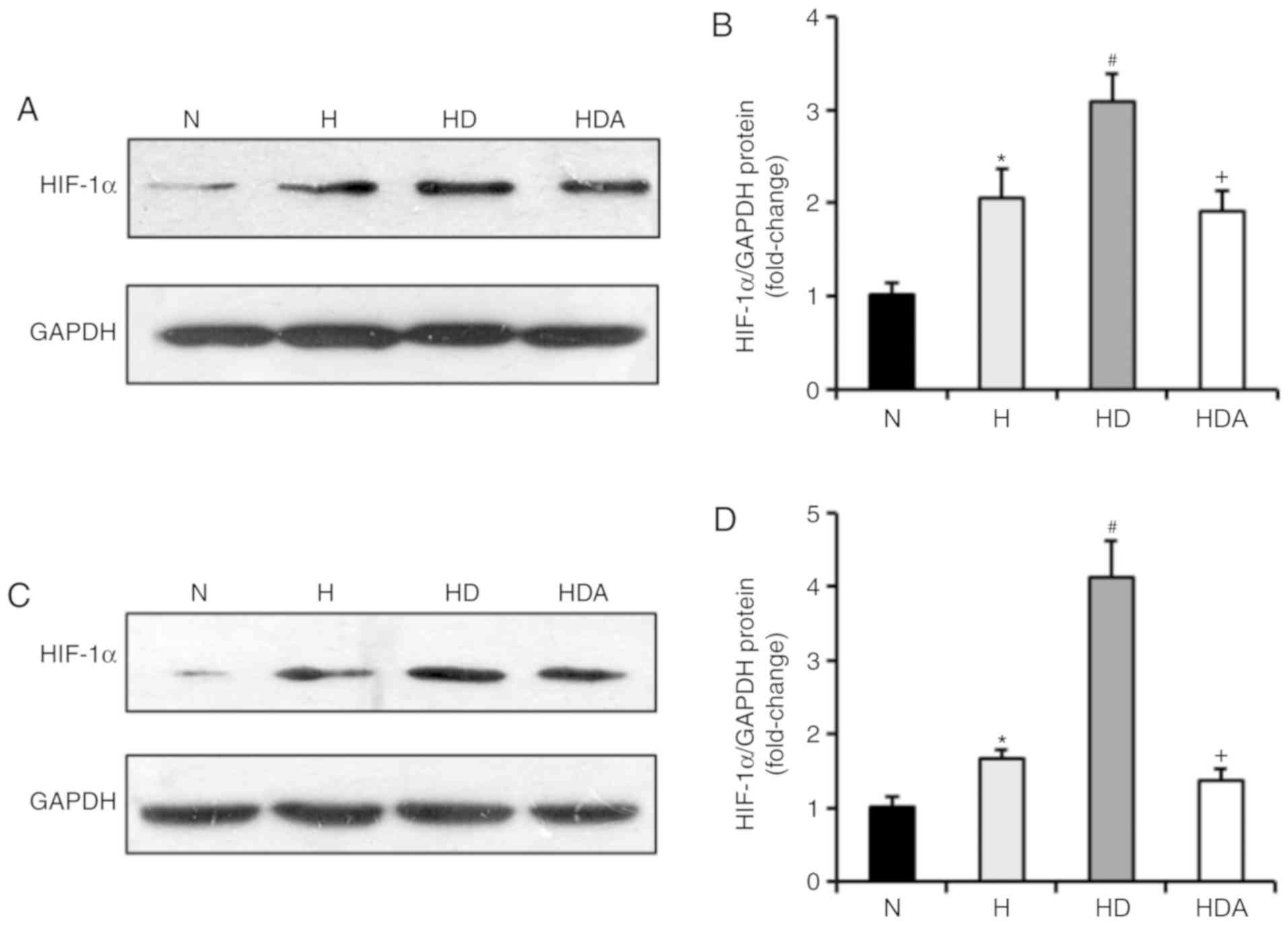|
1
|
Hopewood P and Milroy MJ and Milroy MJ:
Cancer Statistics: Global and NationalQuality Cancer Care.
Springer; New York, NY, USA: pp. 29–35. 2018
|
|
2
|
Bray F, Ferlay J, Soerjomataram I, Siegel
RL, Torre LA and Jemal A: Global cancer statistics 2018: GLOBOCAN
estimates of incidence and mortality worldwide for 36 cancers in
185 countries. CA Cancer J Clin. 68:394–424. 2018. View Article : Google Scholar : PubMed/NCBI
|
|
3
|
Hiller JG, Perry NJ, Poulogiannis G,
Riedel B and Sloan EK: Perioperative events influence cancer
recurrence risk after surgery. Nat Rev Clin Oncol. 15:205–218.
2018. View Article : Google Scholar : PubMed/NCBI
|
|
4
|
Olcina MM, Kim RK, Melemenidis S, Graves
EE and Giaccia AJ: The tumour microenvironment links complement
system dysregulation and hypoxic signalling. Br J Radiol.
15:201800692018.(Epub ahead of print). View Article : Google Scholar
|
|
5
|
Wigerup C, Påhlman S and Bexell D:
Therapeutic targeting of hypoxia and hypoxia-inducible factors in
cancer. Pharmacol Ther. 164:152–169. 2016. View Article : Google Scholar : PubMed/NCBI
|
|
6
|
Gupta K, Prasad A, Nagappa M, Wong J,
Abrahamyan L and Chung FF: Risk factors for opioid-induced
respiratory depression and failure to rescue: A review. Curr Opin
Anaesthesiol. 31:110–119. 2018. View Article : Google Scholar : PubMed/NCBI
|
|
7
|
Campos JH and Feider A: Hypoxia during
one-lung ventilation-a review and update. J Cardiothorac Vasc
Anesth. 32:2330–2338. 2018. View Article : Google Scholar : PubMed/NCBI
|
|
8
|
Soltanizadeh S, Degett TH and Gogenur I:
Outcomes of cancer surgery after inhalational and intravenous
anesthesia: A systematic review. J Clin Anesth. 42:19–25. 2017.
View Article : Google Scholar : PubMed/NCBI
|
|
9
|
Cassinello F, Prieto I, del Olmo M, Rivas
S and Strichartz GR: Cancer surgery: How may anesthesia influence
outcome? J Clin Anesth. 27:262–272. 2015. View Article : Google Scholar : PubMed/NCBI
|
|
10
|
Wu GJ, Chen JT, Tsai HC, Chen TL, Liu SH
and Chen RM: Protection of dexmedetomidine against
ischemia/reperfusion-induced apoptotic insults to neuronal cells
occurs via an intrinsic mitochondria-dependent pathway. J Cell
Biochem. 118:2635–2644. 2017. View Article : Google Scholar : PubMed/NCBI
|
|
11
|
Wang SL, Duan L, Xia B, Liu Z, Wang Y and
Wang GM: Dexmedetomidine preconditioning plays a neuroprotective
role and suppresses TLR4/NF-kB pathways model of cerebral ischemia
reperfusion. Biomed Pharmacother. 93:1337–1342. 2017. View Article : Google Scholar : PubMed/NCBI
|
|
12
|
Cui J, Zhao H, Wang C, Sun JJ, Lu K and Ma
D: Dexmedetomidine attenuates oxidative stress induced lung
alveolar epithelial cell apoptosis in vitro. Oxid Med Cell Longev.
2015:3583962015. View Article : Google Scholar : PubMed/NCBI
|
|
13
|
Cho JS, Shim JK, Soh S, Kim MK and Kwak
YL: Perioperative dexmedetomidine reduces the incidence and
severity of acute kidney injury following valvular heart surgery.
Kidney Int. 89:693–700. 2016. View Article : Google Scholar : PubMed/NCBI
|
|
14
|
Szpunar MJ, Burke KA, Dawes RP, Brown EB
and Madden KS: The antidepressant desipramine and alpha2-adrenergic
receptor activation promote breast tumor progression in association
with altered collagen structure. Cancer Prev Res (Phila).
6:1262–1272. 2013. View Article : Google Scholar : PubMed/NCBI
|
|
15
|
Bruzzone A, Pinero CP, Castillo LF,
Sarappa MG, Rojas P, Lanari C and Luthy IA: Alpha2-adrenoceptor
action on cell proliferation and mammary tumour growth in mice. Br
J Pharmacol. 155:494–504. 2008. View Article : Google Scholar : PubMed/NCBI
|
|
16
|
Castillo LF, Rivero EM, Goffin V and Luthy
IA: Alpha2-adrenoceptor agonists trigger prolactin signaling in
breast cancer cells. Cell Signal. 34:76–85. 2017. View Article : Google Scholar : PubMed/NCBI
|
|
17
|
Deng F, Ouyang M, Wang X, Yao X, Chen Y,
Tao T, Sun X, Xu L, Tang J and Zhao L: Differential role of
intravenous anesthetics in colorectal cancer progression:
Implications for clinical application. Oncotarget. 7:77087–77095.
2016. View Article : Google Scholar : PubMed/NCBI
|
|
18
|
Virtanen R: Pharmacological profiles of
medetomidine and its antagonists, atipamezole. Acta Vet Scand
Suppl. 85:29–37. 1989.PubMed/NCBI
|
|
19
|
Liang H, Yang CX, Zhang B, Wang HB, Liu
HZ, Lai XH, Liao MJ and Zhang T: Sevoflurane suppresses
hypoxia-induced growth and metastasis of lung cancer cells via
inhibiting hypoxia-inducible factor-1α. J Anesth. 29:821–830. 2015.
View Article : Google Scholar : PubMed/NCBI
|
|
20
|
Peng JK, Shen SQ, Wang J, Jiang HW and
Wang YQ: Etaypoxia-inducible factor 1-α promotes colon cell
proliferation and migration by upregulating AMPK-related protein
kinase 5 under hypoxic conditions. Oncol Lett. 15:3639–3645.
2018.PubMed/NCBI
|
|
21
|
Li H, Wang X, Wen C, Huo Z, Wang W, Zhan
Q, Cheng D, Chen H, Deng X, Peng C and Shen B: Long noncoding RNA
NORAD, a novel competing endogenous RNA, enhances the
hypoxia-induced epithelial-mesenchymal transition to promote
metastasis in pancreatic cancer. Mol Cancer. 16:1692017. View Article : Google Scholar : PubMed/NCBI
|
|
22
|
Livak KJ and Schmittgen TD: Analysis of
relative gene expression data using real-time quantitative PCR and
the 2(-Delta Delta C(T)) method. Methods. 25:402–408. 2001.
View Article : Google Scholar : PubMed/NCBI
|
|
23
|
Alaseem A, Alhazzani K, Dondapati P,
Alobid S, Bishayee A and Rathinavelu A: Matrix metalloproteinases:
A challenging paradigm of cancer management. Semin Cancer Biol.
56:100–115. 2019. View Article : Google Scholar : PubMed/NCBI
|
|
24
|
Zhang W, Zhang JQ, Meng FM and Xue FS:
Dexmedetomidine protects against lung ischemia-reperfusion injury
by the PI3K/Akt/HIF-1α signaling pathway. J Anesth. 30:826–833.
2016. View Article : Google Scholar : PubMed/NCBI
|
|
25
|
Piegeler T and Beck-Schimmer B: Anesthesia
and colorectal cancer-The perioperative period as a window of
opportunity? Eur J Surg Oncol. 42:1286–1295. 2016. View Article : Google Scholar : PubMed/NCBI
|
|
26
|
Wigmore TJ, Mohammed K and Jhanji S:
Long-term survival for patients undergoing volatile versus IV
anesthesia for cancer surgery: A retrospective analysis.
Anesthesiology. 124:69–79. 2016. View Article : Google Scholar : PubMed/NCBI
|
|
27
|
Xie Z: Cancer prognosis: Can anesthesia
play a role? Anesthesiology. 119:501–503. 2013. View Article : Google Scholar : PubMed/NCBI
|
|
28
|
Terry S, Buart S and Chouaib S: Hypoxic
stress-induced tumor and immune plasticity, suppression, and impact
on tumor heterogeneity. Front Immunol. 8:16252017. View Article : Google Scholar : PubMed/NCBI
|
|
29
|
Athanasoula KCh, Gogas H, Polonifi K,
Vaiopoulos AG, Polyzos A and Mantzourani M: Survivin beyond
physiology: Orchestration of multistep carcinogenesis and
therapeutic potentials. Cancer Lett. 347:175–182. 2014. View Article : Google Scholar : PubMed/NCBI
|
|
30
|
Mobahat M, Narendran A and Riabowol K:
Survivin as a preferential target for cancer therapy. Int J Mol
Sci. 15:2494–2516. 2014. View Article : Google Scholar : PubMed/NCBI
|
|
31
|
Rankin EB and Giaccia AJ: Hypoxic control
of metastasis. Science. 352:175–180. 2016. View Article : Google Scholar : PubMed/NCBI
|
|
32
|
Li X, Liu X, Xu Y, Liu J, Xie M, Ni W and
Chen S: KLF5 promotes hypoxia-induced survival and inhibits
apoptosis in non-small cell lung cancer cells via HIF-1α. Int J
Oncol. 45:1507–1514. 2014. View Article : Google Scholar : PubMed/NCBI
|
|
33
|
Sun XP, Dong X, Lin L, Jiang X, Wei Z,
Zhai B, Sun B, Zhang Q, Wang X, Jiang H, et al: Up-regulation of
survivin by AKT and hypoxia-inducible factor 1α contributes to
cisplatin resistance in gastric cancer. FEBS J. 281:115–128. 2014.
View Article : Google Scholar : PubMed/NCBI
|
|
34
|
Ai P, Shen B, Pan H, Chen K, Zheng J and
Liu F: MiR-411 suppressed vein wall fibrosis by downregulating
MMP-2 via targeting HIF-1α. J Thromb Thrombolysis. 45:264–273.
2018. View Article : Google Scholar : PubMed/NCBI
|
|
35
|
Yang L, Shen L, Li G, Yuan H, Jin X and Wu
X: Silencing of hypoxia inducible factor-1α gene attenuated
angiotensin-induced abdominal aortic aneurysm in apolipoprotein
E-deficient mice. Atherosclerosis. 252:40–49. 2016. View Article : Google Scholar : PubMed/NCBI
|
|
36
|
Gu J, Sun P, Zhao H, Watts HR, Sanders RD,
Terrando N, Xia P, Maze M and Ma D: Dexmedetomidine provides
renoprotection against ischemia-reperfusion injury in mice. Crit
Care. 15:R1532011. View Article : Google Scholar : PubMed/NCBI
|
|
37
|
Zhang XY, Liu ZM, Wen SH, Li YS, Li Y, Yao
X, Huang WQ and Liu KX: Dexmedetomidine administration before, but
not after, ischemia attenuates intestinal injury induced by
intestinal ischemia-reperfusion in rats. Anesthesiology.
116:1035–1046. 2012. View Article : Google Scholar : PubMed/NCBI
|















